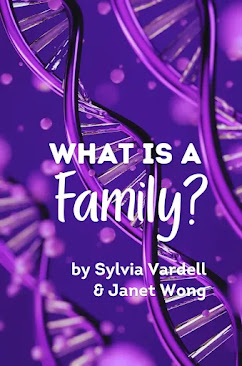On Tuesday, September 8, 2009, we'll announce the winner. We'll also have a round-up of links to other sites where April has been interviewed, as well as links to recent interviews with two other TeachingAuthors. We won't be posting on Monday, because of the Labor Day holiday. After Tuesday, we'll return to our usual Monday, Wednesday, Friday posting schedule.
Carmela:
April, here's our last question for you: How would you like to see teachers, parents, and young readers using New Year at the Pier?
April:
I’d like teachers to use it to help explain to students why some of their Jewish classmates are absent…and what they’re doing.
I’d like them to use it in January to talk about all the ways people around the world celebrate the new year. (For more on New Year Rituals Around the World, see my website.)
I’d like teachers and parents to use the book to open discussions about how to apologize. To help, I've listed resources for discussing forgiveness on my website.
I’d like them to use it to act out how to accept an apology.
I’d like older kids to use this book as an opening to discussions about the Rwanda Reconciliation. I've provided resources for this on my website too.
And here's an activity I’d like all readers to try:
Think of one person you’ve harmed.
Write about the incident and read it to someone else.
Sit with the feelings for a bit, then be willing to let them go.
The feelings may not go away, but the first step is to be willing to let them go away.
Then make an appointment to see the person you've hurt face-to-face to apologize. No excuses—just a simple heartfelt apology…without expectations that you will be forgiven. Rabbi Neil told me that forgiveness can’t be the focus of the apology. I can’t apologize in order to be forgiven or to feel better.
Here’s an example: Last year I gave a 7th grade poetry workshop at a Catholic school. It was a terrific school, the students were very responsive, and I love teaching this particular workshop. A few days later, the principal of the school called to say that a website I referred to in the workshop contained X-rated content.
You can imagine the feedback she’d gotten from parents.
I was mortified. I called a very smart friend and asked her what to do. She suggested that I use it as a teaching opportunity—that I offer to write an article in the parent newsletter cautioning about the ever-changing internet. She suggested that I could publish the article in a magazine.
I tried to write that article. I really tried. But it didn’t sound very sincere.
I called my friend Bruce.
“What should I do?” I asked.
“You should apologize,” he said.
“That’s all?” I asked. “But what about the article?”
“How would you feel if you were in their position?” he asked. “Wouldn’t you just want to hear, ‘I’m so sorry?’ Don’t complicate it.”
So I wrote and sent a sincere letter of apology. And it felt right.
Another thing I’d like readers to do with the book is use it to learn about feeding the hungry. I am donating a portion of the profits of this book to Mazon, a Jewish response to hunger.
Finally, how else would I like people to use New Year at the Pier? I’d love to hear that one of you gave this book to a friend as a way of finally apologizing about something that’s been bothering you for a long-long-long-long time.
Rabbi Neil Comess-Daniels told me a story of a man who was sorry that he gossiped about someone. The man went to his rabbi for help to him make it right.
“I can’t help you,” the rabbi said.
“But I’m really sorry,” the man said. “I want to make it right.”
“You can’t make it right.” the rabbi said.
“But why?” the man asked.
“Go get me a knife and a feather pillow,” the rabbi said.
The man brought back a pillow. The rabbi stabbed the feather pillow and shook out all the feathers, throwing them to the winds.
“There are some things that can never be put back together the way they were. A situation can be changed through apology, but it cannot be undone,” said the rabbi.
I’M SORRY
by April Halprin Wayland
I ripped your pillow.
Your favorite pillow.
Filled with feathers.
Was it your father’s?
You ran out crying.
So I am trying
to find each feather
and put it back.
The wind is blowing,
the feathers going
out the window
all over the yard
This fixing pillows
is very hard.
© April Halprin Wayland















1 comment:
Lots of great possibilities! I can't wait to share the book with my fourth graders in the next couple of weeks.
Post a Comment